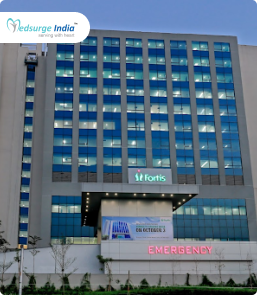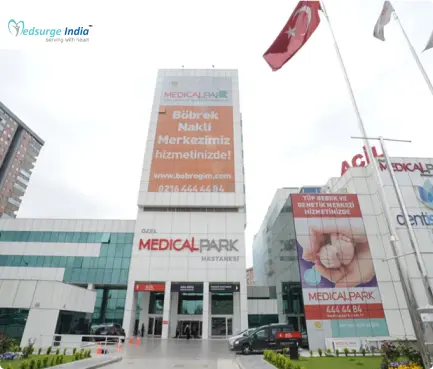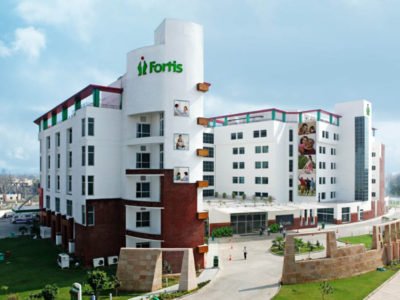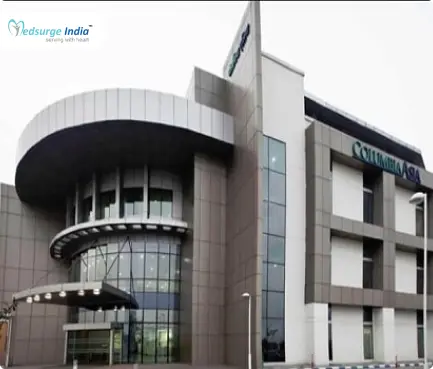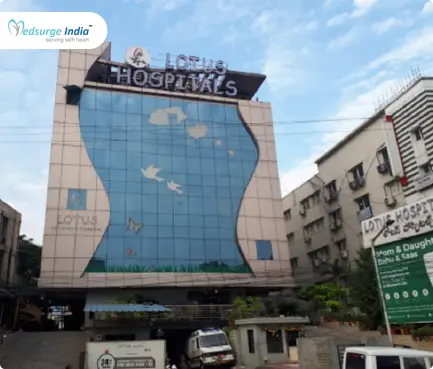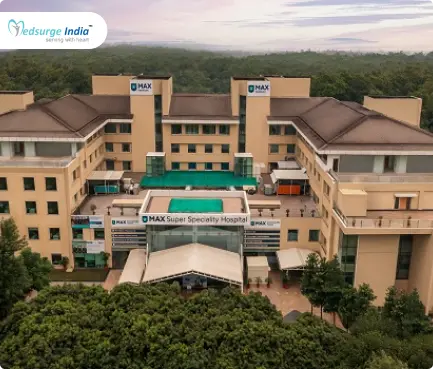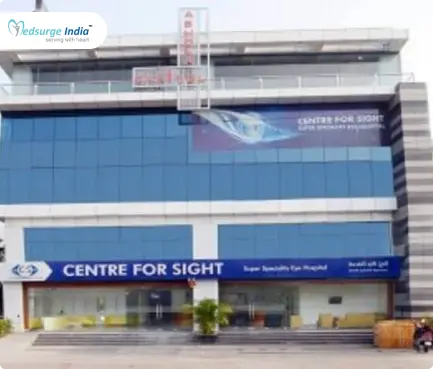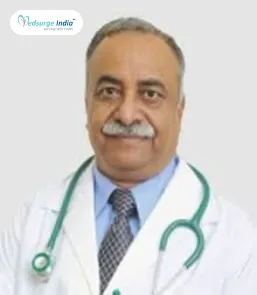
Colorectal cancer develops when healthy cells in the colon or rectum lining mutate and grow out of control, causing a tumor. Tumors can be malignant or noncancerous. A malignant tumor is one that has the potential to grow and spread to other regions of the body.
The term “benign tumor” refers to a tumor that can develop but not spread. It normally takes years for these changes to manifest. Changes can be caused by both hereditary and environmental causes. When a person has a rare inherited syndrome, however, alterations can take months or years to manifest.
Colorectal cancer is a type of cancer that affects the colon and rectum. It is also known as bowel cancer, colon cancer, or rectal cancer.
The majority of colorectal cancers are caused by adenomatous (precancerous) polyps that grow over time. After a series of mutations (abnormalities) in their cellular DNA, polyps (growths) might change. A family history of colon or rectal cancer, diet, alcohol consumption, smoking, and inflammatory bowel disease are all risk factors for colorectal cancer.
Colorectal cancer treatment cost in India is generally carried out by gastroenterologists and another team of doctors. The treatment depends upon the size and location of the tumor.
The total cost of colorectal cancer treatment in India is influenced by various factors including the patient’s overall health, duration of the stay in the hospital, and surgeon’s experience.
What Parts of the Body are Affected by Colorectal Cancer?
It’s helpful to know what areas of the body are impacted by colorectal cancer and how they work in order to comprehend the disease.
The Colon
The colon, which connects the small intestine to the rectum, is a 5- to 6-feet long tube. The colon, which is part of the large intestine together with the rectum, transports, and processes digested food across your body and down to the rectum, where it departs as stool. The colon is made up of various sections, including:
- Ascending Colon
- Descending Colon
- Transverse Colon
- Sigmoid Colon
The Rectum
The rectum connects the colon to the anus and is a 5- to 6-inch chamber. The rectum’s job is to act as a storage unit for the stool until it is defecated (evacuated).
About Colorectal Polyps
The most common cause of colorectal cancer is a polyp, a noncancerous growth that develops on the inner wall of the colon or rectum as people age. A polyp can turn into a potentially life-threatening malignancy if it is not treated or removed. Colorectal cancer can be avoided by detecting and eliminating precancerous polyps.
Polyps come in a variety of shapes and sizes. Adenomatous polyps, often known as adenomas, are malignant growths. Polyps are most easily discovered during a colonoscopy because they frequently bulge into the colon, generating a mound on the colon’s wall that the doctor can visualize.
Around 10% of colon polyps are flat, making them difficult to detect during a colonoscopy unless a dye is applied to highlight them. Regardless of size, these flat polyps have a high chance of turning malignant.
In the colon and rectum, hyperplastic polyps can form. They aren’t thought to be malignant.
Colorectal Cancer Treatment Cost in India
Affordable Colorectal Cancer Treatment Cost in India starts from INR 3,99,000 (4,800 USD). Despite being one of the top destinations for medical tourism worldwide, India’s treatment packages are low when compared to other nations. Even after deducting travel, lodging, and dining costs, the quality and standard of medical care and services are on par with the world’s top institutions.
Factors That Can Affect Colorectal Cancer Treatment Cost in India
Colorectal Cancer Treatment Cost in India may also be contingent upon other factors, including:
- Knowledge and expertise of the doctor in the field.
- The patient’s condition: the nature of the illness and whether further modalities are needed for an all-encompassing course of care.
- Colorectal cancer treatment cost in India can vary depending on the type of hospital the patient chooses.
- Length of stay in the nation and hospitalization.
- If post-operative care is required.
What Are the Signs and Symptoms of Colorectal Cancer?
People will show the following symptoms or signs of colorectal cancer. Fatigue, nausea, or discomfort are examples of symptoms that only the individual experiencing them can recognize and describe.
Colorectal polyps and tumors do not always create symptoms, particularly initially. It’s possible that someone has polyps or colorectal cancer and is completely unaware of it. That is why it is critical to have frequent colorectal cancer screenings.
The following are some of the most common signs and symptoms of colorectal cancer:
- A change in bowel habits is one of the most common causes of constipation.
- Diarrhea, constipation, or the sensation that the bowels are not totally emptied
- Blood in the stool that is bright crimson or very dark
- Stools that appear to be smaller or thinner than they should be
- Abdominal discomforts, such as regular gas sensations, bloating, fullness, and cramps
- Weight loss without an identified cause
- Constant exhaustion or fatigue
- Undiagnosed iron deficiency anemia is characterized by a lack of red blood cells.
If any of these symptoms persist for more than a week or become more severe, consult your doctor. If you are concerned about any changes you have noticed, talk to your doctor about getting a colonoscopy.
If cancer is discovered, symptom relief is a critical element of cancer care and treatment. This is known as palliative or supportive care. It is frequently initiated soon after a diagnosis and continued throughout the course of treatment of colorectal cancer. Make an appointment with your healthcare provider to discuss your symptoms, including any new or changing symptoms.
What Are the Causes of Colorectal Cancer?
Oncologists have discovered a number of factors that can raise a person’s risk of this cancer, The causes of colorectal cancer are frequently unknown. As per medical research following factors, on the other hand, may increase a person’s risk of developing colorectal cancer:
- Age
- Race
- Gender
- Family history of Colorectal Cancer
- Rare Inherited Conditions
Additionally, the following are some of the lifestyle factors that may raise the risk of colorectal cancer:
- Inadequate regular physical activity
- A diet that is lacking in fruits and vegetables.
- A diet that is low in fiber and high in fat, or a diet that is high in processed meats.
- Obesity and being overweight.
- Consumption of alcohol.
- Tobacco consumption.
How the Diagnosis of Colorectal Cancer Is Done?
Colon cancer is diagnosed by examining the colon and the rectum.
The diagnosis of colorectal cancer can be done by using the tests and procedures listed below:
- Physical Exam and Health History
- Digital Rectal Exam
- Colonoscopy
- Fecal Occult Blood Test
- Biopsy
Get Free Cost Estimation
Procedure
What Are the Treatment Options for Colorectal Cancer?
Different types of cancer doctors often work together to create a patient’s overall cancer treatment plan that includes or combines different types of therapies. Such a group is known as a multidisciplinary team.
A surgeon, medical oncologist, radiation oncologist, and gastroenterologist are usually involved in colorectal cancer treatment in India. A gastroenterologist is a doctor who specializes in the gastrointestinal tract’s function and problems.
Physician assistants, nurse practitioners, oncology nurses, social workers, pharmacists, counselors, nutritionists, and other health care professionals are all part of colorectal cancer treatment teams.
Take the time to learn about all of your treatment options, and don’t be afraid to ask questions if you have any concerns. Discuss the aims of each treatment with your doctor, as well as what to expect during treatment.
Each major type of colorectal cancer treatment in India is described below:
- Laparoscopic Surgery
- Colostomy for Rectal Cancer
- Cryoablation
- Radiation Therapy
- Chemotherapy
- Targeted Drug Therapy
- Immunotherapy
The type and stage of cancer, potential side effects, as well as the patient’s preferences and overall health, all influence treatment options, cost and recommendations.
Suggestion
People who are at a higher risk of colorectal cancer should consult their doctors about when to start screening, which test is best for them, and how frequently they should be examined.
Polyps or colorectal cancer can be detected using a variety of screening procedures. The advantages and disadvantages of different screening approaches differ.
Also, Know About –
Best Oncologist in India
- Dr. Vinod Raina
- Dr. Ankur Bahl
- Dr. Prasad
- Dr. Niranjan Naik
- Dr. Vedant Kabra
- Dr. Peush Bajpai
- Dr. Deenadayalan
- Dr. K. R. Gopi
- Dr. Rohit Nayyar
Best Cancer Hospitals in India
The Most Important Frequently Asked Questions
Q: Which Type of Treatment Is Most Common for Colorectal Cancer?
A: Surgery
During surgery, the tumour is removed along with some healthy tissue around it. Surgical resection is a common name for it. Colorectal cancer is treated with this method the most.
Q: Can Colon Cancer Spread After Surgery?
A: Colorectal cancer does not “recur” in the majority of people. However, the cancer may return in about 35% to 40% of persons who have surgery with or without chemotherapy within 3 to 5 years of treatment. It could be in the colon or rectum, or in another region of the body, such as the liver or lungs, if this happens.
Q: How Do You Take Care of After Colon Cancer Surgery?
A: You will be anguished when you wake up after surgery and will require pain medication for a few days. Because the colon needs time to recuperate, you may not be able to eat for the first few days or be given just limited liquids. In a few days, most patients are able to take solid meals.
Q: What Are the Side Effects of Colon Surgery?
A: You may notice changes in your bowels after surgery, such as:
- Liquid defecating more frequently
- having no or little notice that you need to poop or release gas
- stool alterations, such as loose, runny faeces (diarrhoea) or hard, difficult to pass faeces
- Trouble in passing the stool (constipation)
- Excess of bloating
Q: What Happens If a Tumor Is Found During a Colonoscopy?
A: A suspected colorectal cancer is usually biopsied during a colonoscopy if it is discovered by any screening or diagnostic test. A biopsy is when a doctor uses a specific instrument passed via the scope to remove a small piece of tissue. To make the diagnosis, a portion of the colon may need to be surgically removed.
Top Hospitals for Colorectal Cancer Treatment in India
Top Doctors for Oncology and Oncosurgery
Dr. Pankaj Kumar Arora
Associate Director
Experience: 15 years of experience
Max Superspecialty Hospital, Mohali
Mohali, India
Dr. Nidhi Patni
Director
Experience: 20 years of experience
Bhagwan Mahaveer Cancer Hospital & Research Centre, Jaipur
Jaipur, India
Dr. Niti Raizada
Director & HOD-Oncology Department
Experience: 21+ years of experience
Bangalore, India
Dr. Rohit P V Nair
Consultant , MBBS, Post Graduation, MRCS
Experience: 9 years of experience
Kochi, India
Dr. Dinesh Chandra Katiyar
Senior Consultant
Experience: 30 years of experience
Venkateshwar Hospital, New Delhi
New Delhi, India
Dr. Sandeep Kumar Mohan
Associate Consultant
Experience: 10 years of experience
BLK Super Speciality Hospital, New Delhi
New Delhi, India
Dr. Jyotika Jain
Senior Consultant
Experience: 20 years of experience
Venkateshwar Hospital, New Delhi
NewDelhi, India
Dr. Sunandan Sharma
Associate Director
Experience: 22 years of experience
Max Superspecialty Hospital, Mohali
Mohali, India
Dr. Itesh Khatwani
Senior Consultant
Experience: 13+ years of experience
Narayana Multispeciality Hospital, Rakhial, Ahmedabad
Ahmedabad, India
Dr. Roshan Dixit
Consultant
Experience: 7 years of experience
Medanta – The Medicity, Gurgaon
Gurgaon, India


